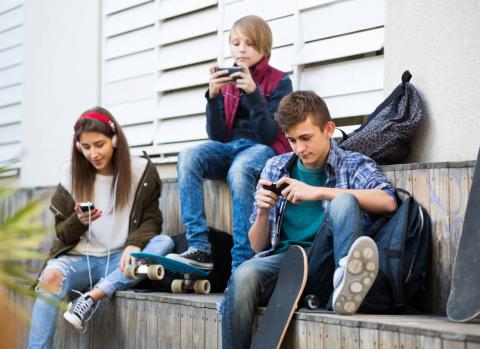Reaction: Frequent social media checking linked to changes in the adolescent brain
Constant checking of social media activity in early adolescence is associated with changes in the brain's sensitivity to rewards and punishments. This is the conclusion of a study involving 169 12- and 13-year-old students in the United States with Facebook, Instagram and Snapchat profiles, according to JAMA Pediatrics.

Ignacio Morgado - cerebro redes sociales EN
Ignacio Morgado
Professor Emeritus of Psychobiology at the Autonomous University of Barcelona (UAB) and full member of the Spanish Academy of Psychology
This is a longitudinal study that explores how different frequencies of daily consultation on social networks (Facebook, Instagram, etc.) can modify, over time, the social sensitivity of young adolescents to social stimuli of reward and punishment.
This is a study that uses functional magnetic resonance imaging to analyse the response of different brain regions to situations of reinforcement or punishment that young people face when they consult social networks.
The results show that, indeed, as seen in the changes in activation of different brain regions, particularly the prefrontal cortex or the amygdala, young people's activity on social networks can change their social sensitivity over time.
The study is methodologically sound but the sample of experimental subjects, once refined (because it is initially large), falls somewhat short and, in my opinion, is not sufficient for the results to be generalisable to larger populations. That is to say, the conclusions would probably need a larger number of experimental subjects to be generalisable, especially because of the variations observed according to the frequency of consultations that the subjects have on the Internet.
Maria T. Maza et al.
- Research article
- Peer reviewed
- Observational study
- People


